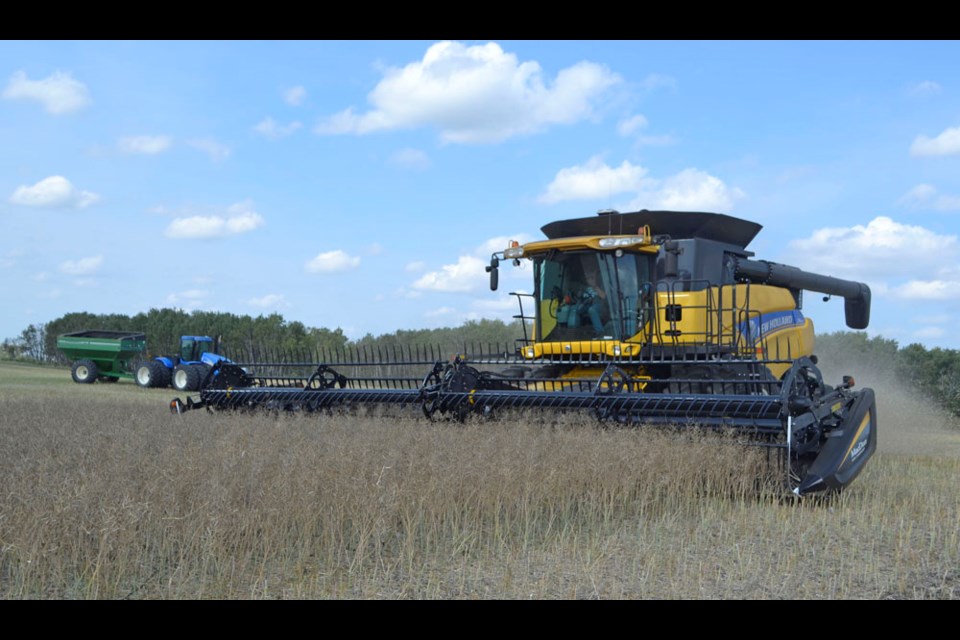The crop is in, and the numbers are down.
Throughout the evening of August 31 and much of the following day, six combines, along with several grain carts and trucks, harvested the 275-acre Cross Borders Community Growing Project field near Kola.
A barbecue lunch traditionally precedes the work, however with rain in the forecast it was postponed to the following Tuesday, when about 80 people came out to partake in the meal, provided by corporate sponsors BDO Canada and the SunRise Credit Union.
Organizer Don Neufeld lamented the challenges of this year’s growing season, which included a prolonged period with little moisture. He reported that the yield of 31.6 bushels of canola per acre was considerably less than what would have been realized under more harmonious conditions.
“We’re usually between 40 to 50 bushels per acre,” he said. This time, there was approximately 8,583 bushels in all, which brought in about $103,000.00. As is customary, the proceeds will go to the Canadian Foodgrains Bank, a partnership of 15 church agencies which assists third world countries with addressing food insecurity.
“There are 38 active projects organized by communities,” said Foodgrains Bank Manitoba Regional Representative Gordon Jansen via telephone from Winnipeg. “Kola is one of the larger ones. They’ve been very, very supportive over the years. Growing projects continue to be an important part of our support base, providing about half of our donations.”
Neufeld said the dearth of rain throughout much of this summer was significant, but not the sole factor which influenced the end result.
“We had frost, hail, flooding, drought and flea beetles,” he said. “We had a challenging year.”
Jansen is confident that despite the challenging crop year, his organization will still come out ahead after the dust settles.
“The yields are a little bit less than last year,” he said. “They are higher than expected, however there are pockets where there has not been a great harvest. My colleagues in Saskatchewan and Alberta have noted that the yields are generally not as good (as in Manitoba).”
Jansen noted that favourable commodity prices have been a help in making up for the lost bushels.
“In addition, the federal government has made $25 million in matching grants available, which has offered us some stability for out food programs in the third world,” he said.
Jansen said the Canadian Foodgrains Bank continues to feel the effects of the COVID-19 pandemic, which has increased the number of people experiencing hunger across the globe.
“Our programs have adapted with masks and social distancing,” he said. “However, there has been an increase in the numbers of people pushed into greater poverty due to economic downturn.”




